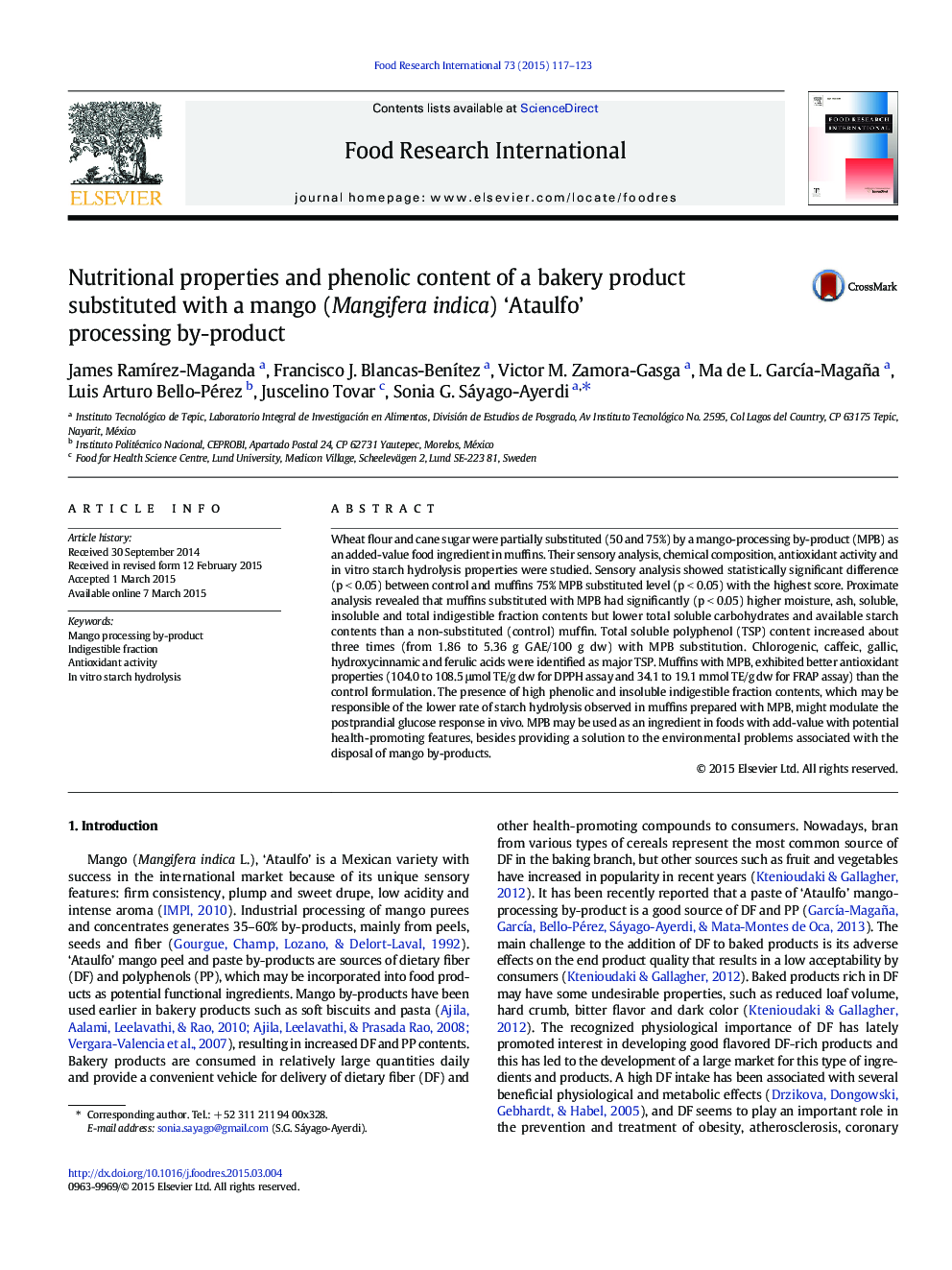| Article ID | Journal | Published Year | Pages | File Type |
|---|---|---|---|---|
| 6395445 | Food Research International | 2015 | 7 Pages |
â¢Mango processing by-product was used to substitute wheat flour/sugarcane in muffins.â¢Substitution of 75% increase about three times total soluble polyphenols.â¢Chlorogenic, caffeic, gallic, hydroxycinnamic and ferulic acids were identified.â¢Total indigestible fraction in muffins increased more than 100% with substitution.â¢Indigestible dietary fiber may be responsible of the lower starch hydrolysis.
Wheat flour and cane sugar were partially substituted (50 and 75%) by a mango-processing by-product (MPB) as an added-value food ingredient in muffins. Their sensory analysis, chemical composition, antioxidant activity and in vitro starch hydrolysis properties were studied. Sensory analysis showed statistically significant difference (p < 0.05) between control and muffins 75% MPB substituted level (p < 0.05) with the highest score. Proximate analysis revealed that muffins substituted with MPB had significantly (p < 0.05) higher moisture, ash, soluble, insoluble and total indigestible fraction contents but lower total soluble carbohydrates and available starch contents than a non-substituted (control) muffin. Total soluble polyphenol (TSP) content increased about three times (from 1.86 to 5.36 g GAE/100 g dw) with MPB substitution. Chlorogenic, caffeic, gallic, hydroxycinnamic and ferulic acids were identified as major TSP. Muffins with MPB, exhibited better antioxidant properties (104.0 to 108.5 μmol TE/g dw for DPPH assay and 34.1 to 19.1 mmol TE/g dw for FRAP assay) than the control formulation. The presence of high phenolic and insoluble indigestible fraction contents, which may be responsible of the lower rate of starch hydrolysis observed in muffins prepared with MPB, might modulate the postprandial glucose response in vivo. MPB may be used as an ingredient in foods with add-value with potential health-promoting features, besides providing a solution to the environmental problems associated with the disposal of mango by-products.
